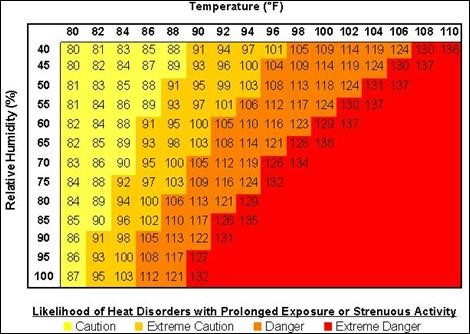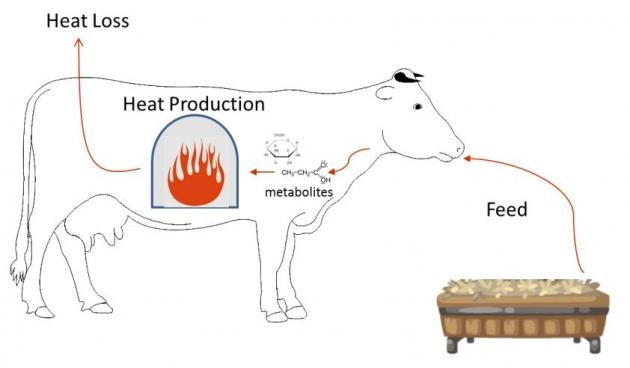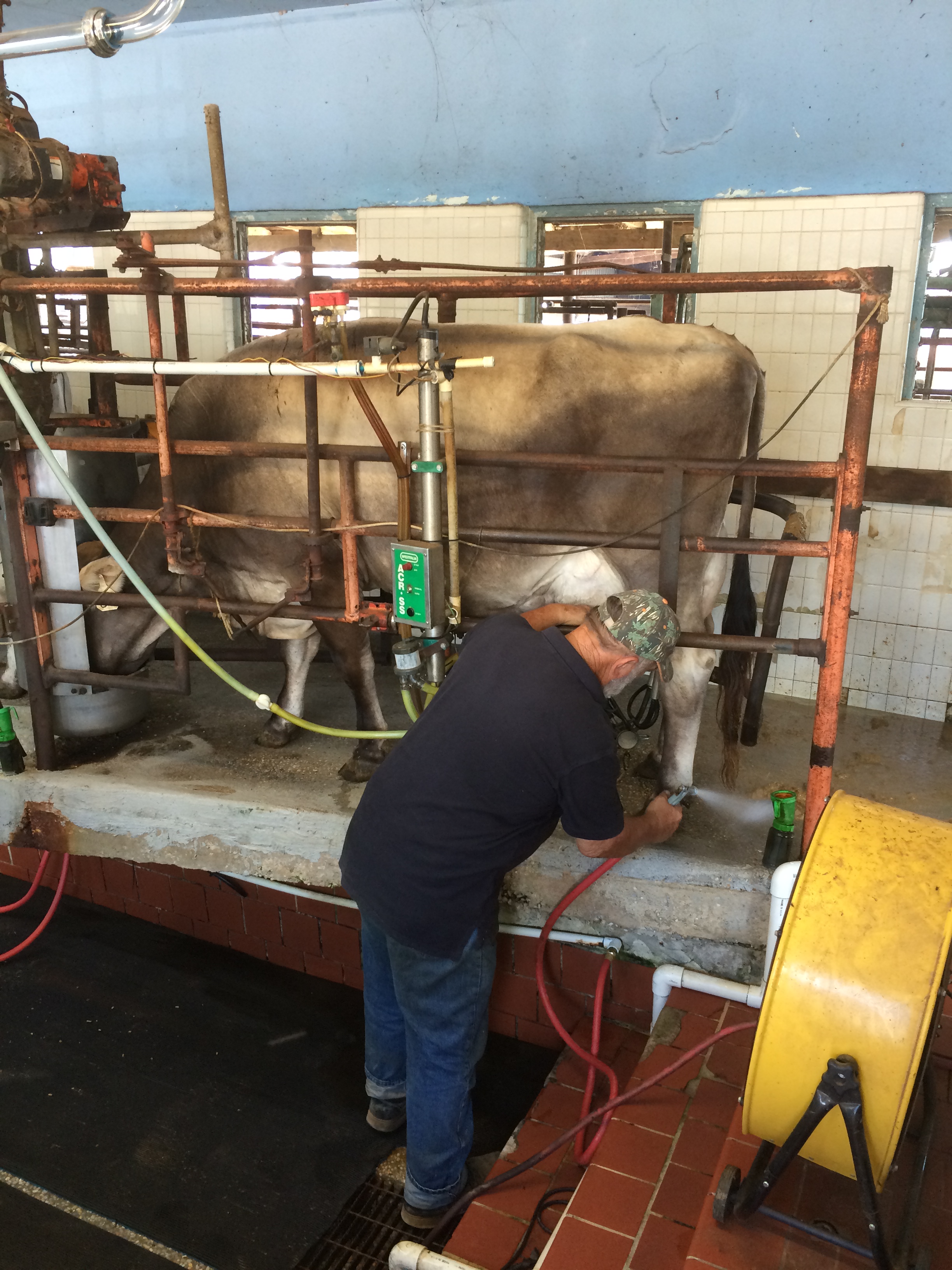All livestock are susceptible to heat stress, especially during periods of high humidity such as we are currently experiencing. Cattle are at particular risk of overheating due to the production of internal heat from fermentation in the rumen (figure 2). Dairy Farmers especially need to be aware of heat stress symptoms and management to prevent health issues and production losses during the hot summer months.

Figure 1. Although used for indices of human heat stress, NOAA’s National Weather Service Heat Index is a good reference for livestock as well. (Source: http://www.nws.noaa.gov/os/heat/index.shtml.)

Figure 2. This diagram shows the process of heat production from fermentation in the cow’s rumen. As daily temperatures rise it is harder for the heat produced by the cow to escape into the atmosphere increasing the chance of heat stress. Source: Cooling Strategies During Heat Stress http://www.extension.org/pages/63354/cooling-strategies-during-heat-stress#.Vale7PkWapQ
Here are some tips to help reduce heat stress in your herd:
Water
- Having easy access to fresh and clean water is very important. When the temperature increases, water intake increases as well. Lactating cows will especially drink more right after milking. Offering a cool and shady spot for drinking is ideal.
Shade
- Providing cover from Florida’s intense sun can help prevent heat stress. Free stall barns with galvanized metal or aluminum roofs can help deflect sun light. If you send your herd to pasture, preferably do it at night, when it is cooler outside. If your herd goes to pasture during the day monitor the fields for potential problems (i.e. mud holes). During hot, humid weather, mud holes can be an inviting place for cattle to wallow in and cool off. This behavior may lead to injury and it also can increase the chances of infection such as mastitis.
Ventilation and supplemental cooling
- Proper ventilation is a crucial factor in preventing heat stress. Fans are used to create airflow, and should be directed to the cow’s backside while she lays in the free stalls. The bigger the diameter of the fan, the more area it can cover. The use of water sprinklers in combination with fans can decrease air temperatures and help cool off cattle.
Feeding and ration formulation
- Shifting feeding schedules to cooler parts of the day (early in the morning and late in evening) can help prevent decreases in dry matter intake. Monitoring feed areas routinely during the day can increase dry matter intake. Since dry matter intake decreases during high temperatures, supplementing fat, protein, and potassium is advisable. It is very important that you consult a dairy nutritionist when considering a change in feed rations.
Recent research has shown that cow behavior is a critical factor to be considered when managing the risk of heat stress. Not only does heat stress effect high yielding milking cows, but it effects dry cows and calves as well. The precautions and tips listed above can help prevent heat stress in your herd of dairy cattle.
Additional Information on cooling strategies and animal heat stress management can be found in the following resources:
Methods To Relieve Heat Stress For Florida Dairies
Cooling Strategies During Heat Stress
Avoid heat stress in your sheep and goats
Cow Behavior: A Critical Factor to Consider Under Heat Stress
- Winter Preparation for Poultry Flocks - November 20, 2015
- Heat Stress Management for Dairy Cattle - July 17, 2015

